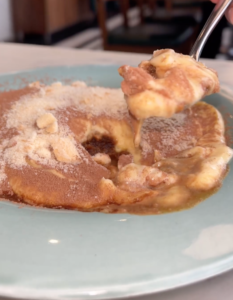11 things you must do to conserve natural resources
Nature has blessed us with air, water, soil, minerals, animals and plants. One depends upon nature for everything. One cannot imagine life without natural resources.
Natural resources are consumed at such high rates that their replenishment cannot keep up. It is essential to conserve nature and the resources it offers.
A few small steps can help conserve natural resources at your own home:
1. Limit the use of water

Water is the prerequisite of life, and it is imperative that we conserve it. In order to alleviate impending shortages, water conservation can go a long way. One must take short showers and turn off the tap to reduce the water waste at home. Smart laundry and washing techniques can save gallons of water. Simple cooking techniques also protect water, like changing your defrosting strategies and choosing steamed vegetables instead of boiled ones.
2. Avoid Plastic use

Plastic waste has been catastrophic for the environment. Around 150 million metric tons of plastic are accumulated in the oceans, and further, 8 million metric tons are released each year. In order to reduce plastic waste, one must cut back on single-use plastic. Avoid using plastic utensils; instead, opt for a set of reusable ones you can use every day of the week.
3. Turn off extra lights

Turning off lights can help you save energy. One should make sure to turn off the lights and television when leaving the room. All the bulbs at home should be replaced with LED light bulbs as they require far less wattage than standard bulbs. All these small things can also help conserve resources.
4. Reduce e-waste

With rapid changes in technology, people switch to advancing products such as phones, laptops, television and many more without thinking about recycling the old products. Most of the current e-waste goes without check and poses a big environmental threat.
5. Conservation Education

Educate people and talk to them about the ways to conserve nature. Debates must be organised on this issue. Start from your own home, and talk to your family about the ways to conserve the earth with small everyday steps.
6. Recycle

Recycling is the best way to conserve nature. It reduces the need to grow, harvest or extract new raw materials from the Earth. From recycling plastic bottles to composting food, you can help reduce the amount of garbage that you send to landfills. While recycling, one should always think about the whole idea: Reduce, Reuse and Recycle.
7. Afforestation

Trees play a vital role in keeping the environment clean. They provide shade and filter pollutants from the air. Trees maintain the balance in the air, which helps to reduce greenhouse gas emissions. Planting trees is the best way to prevent soil erosion. Small steps by each individual can make a significant change. So, every person should plant trees and contribute positively to the environment.
8. Make smart fuel choices

Inefficient vehicles emit carbon dioxide, which leads to air pollution. In order to reduce pollution, regular checks of vehicles should be done, efficient cars should be preferred, including hybrid and e-vehicles, turning off the car at stop signals, etc.
9. Use Solar Energy

Solar energy is a renewable source of energy. It is cost friendly to use at home. Moreover, it reduces the pollution generated by electricity plants.
10. Grow vegetation in catchment areas

Catchment areas are water sources, allowing water to flow into streams, rivers, seas, and oceans. If vegetation is grown in catchment areas, it will promote water absorption into deeper layers of soil. This will allow for groundwater aquifer formation and strengthening. 11. Use Cloth bags when buying Groceries

Always carry a cloth carry bag when you move out to shop. Reusing grocery bags will help avoid taking one-time carry bags from the shop when you don’t need them.






